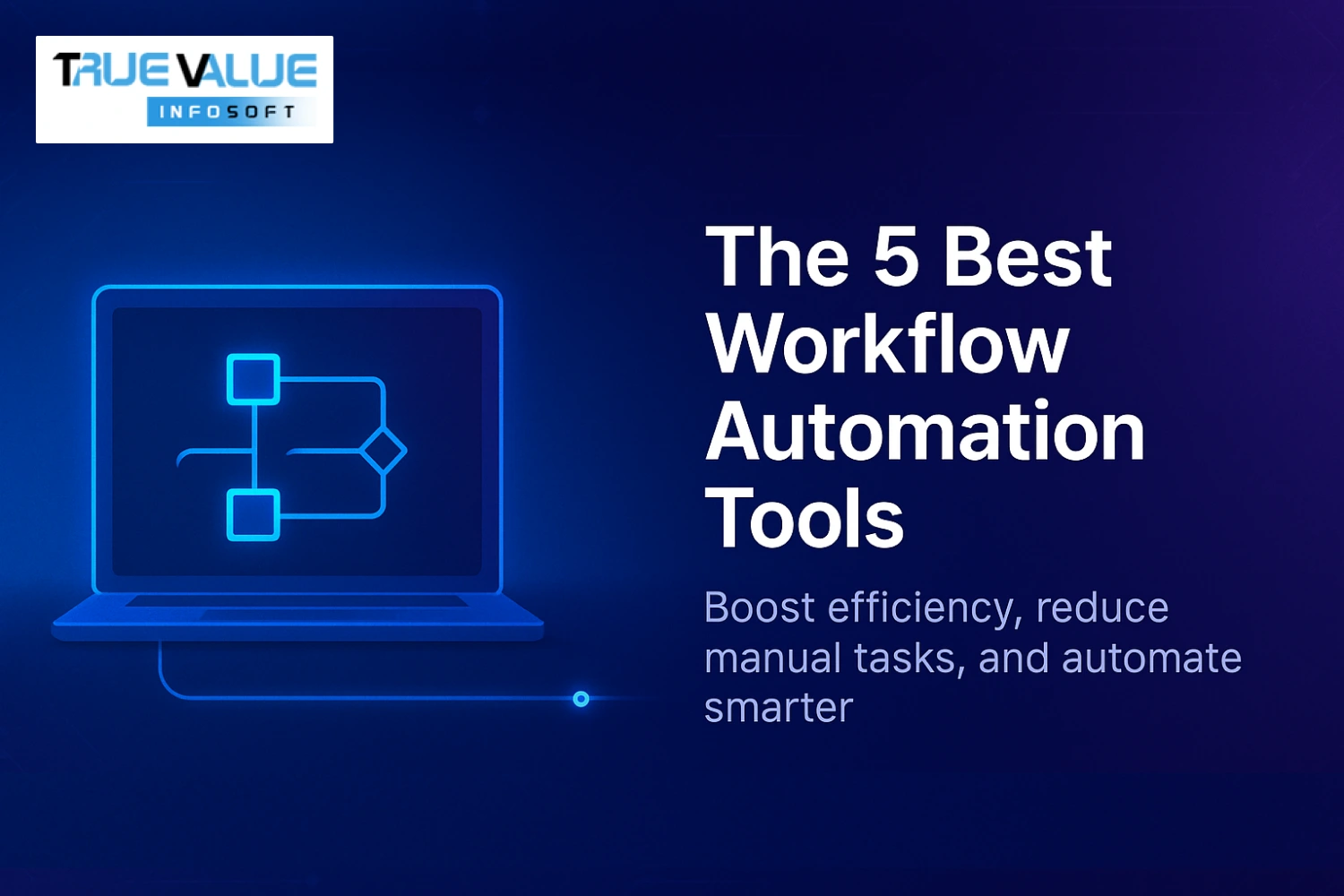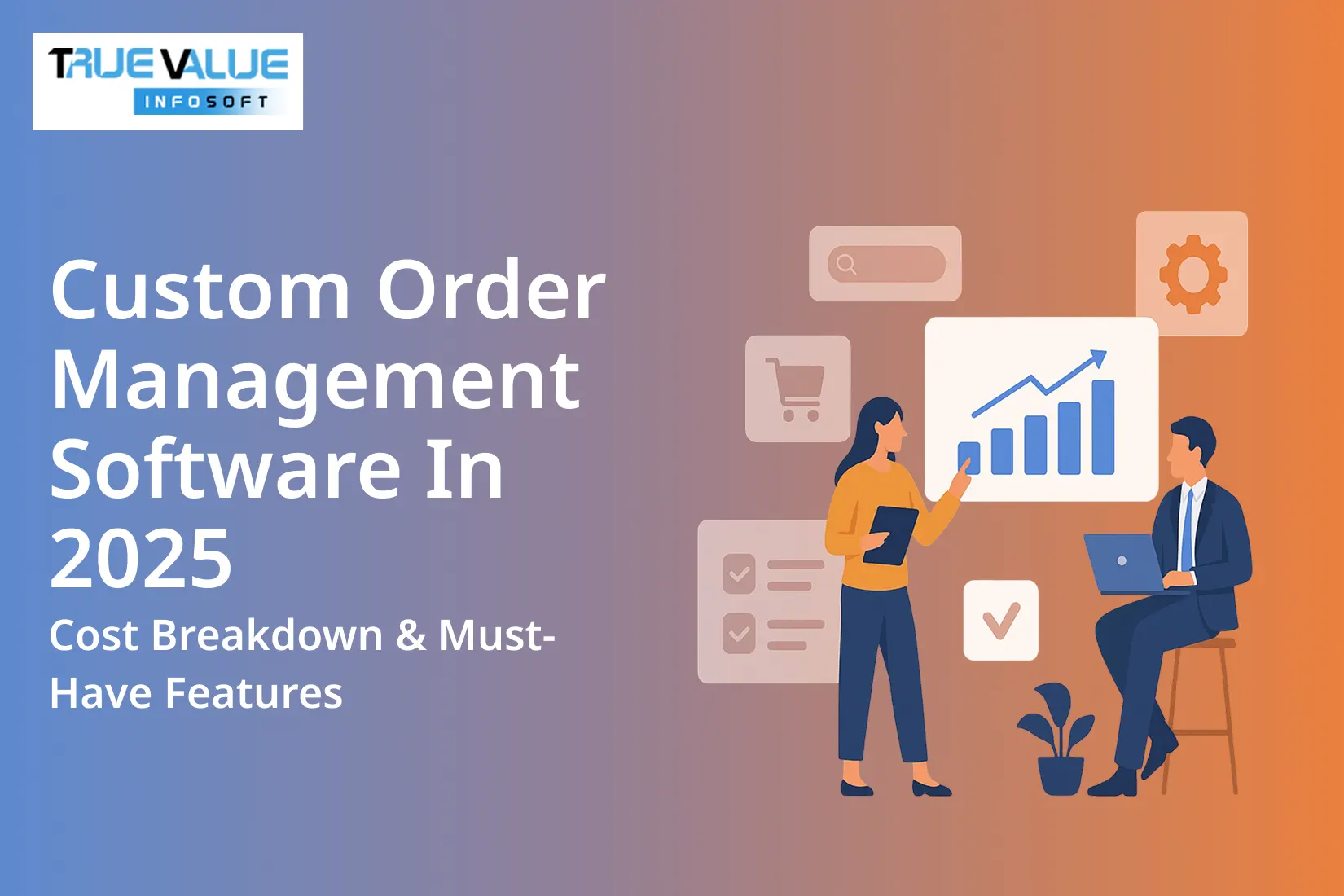Introduction
Looking to unlock the secrets of power licensing and pricing but don’t know where to start? Understanding how power licensing works and how pricing models are set is crucial for businesses and individuals involved in the energy sector today. Whether you are a power producer, distributor, or a large-scale consumer, knowing the ins and outs of these mechanisms can save you significant costs and open new opportunities.
At True Value Infosoft, the best IT company in India and specializing in energy sector solutions, we recognize the complexities and rapid changes in power licensing and pricing frameworks. Our expertise helps clients navigate this evolving landscape by providing advanced software tools and insights tailored to the energy market.
This ultimate guide will walk you through everything you need to know about power licensing—from the different types of licenses and regulatory requirements to the pricing strategies that determine how electricity is bought and sold. You’ll learn how market forces, government policies, and technological advancements impact pricing and licensing decisions, enabling you to make smarter, data-driven choices.
Join us as we unravel the secrets behind power licensing and pricing, empowering you with knowledge to optimize your energy investments and business strategies. With True Value Infosoft by your side, the power to transform your energy dealings is within reach.
What is Power Licensing?
Power licensing refers to the legal authorization granted to companies or entities to generate, transmit, distribute, or sell electric power. It’s a regulatory requirement in many jurisdictions designed to ensure that power generation and distribution comply with safety, environmental, and market standards.
- Purpose of Power Licensing:
- Regulatory control and oversight
- Protect consumer interests
- Promote efficient and sustainable energy use
- Who needs a Power License?
- Power generators (plants, renewable projects)
- Transmission and distribution companies
- Power traders and retailers
- Licensing Authorities:
- National energy regulatory commissions
- State or provincial energy boards
Types of Power Licensing Models
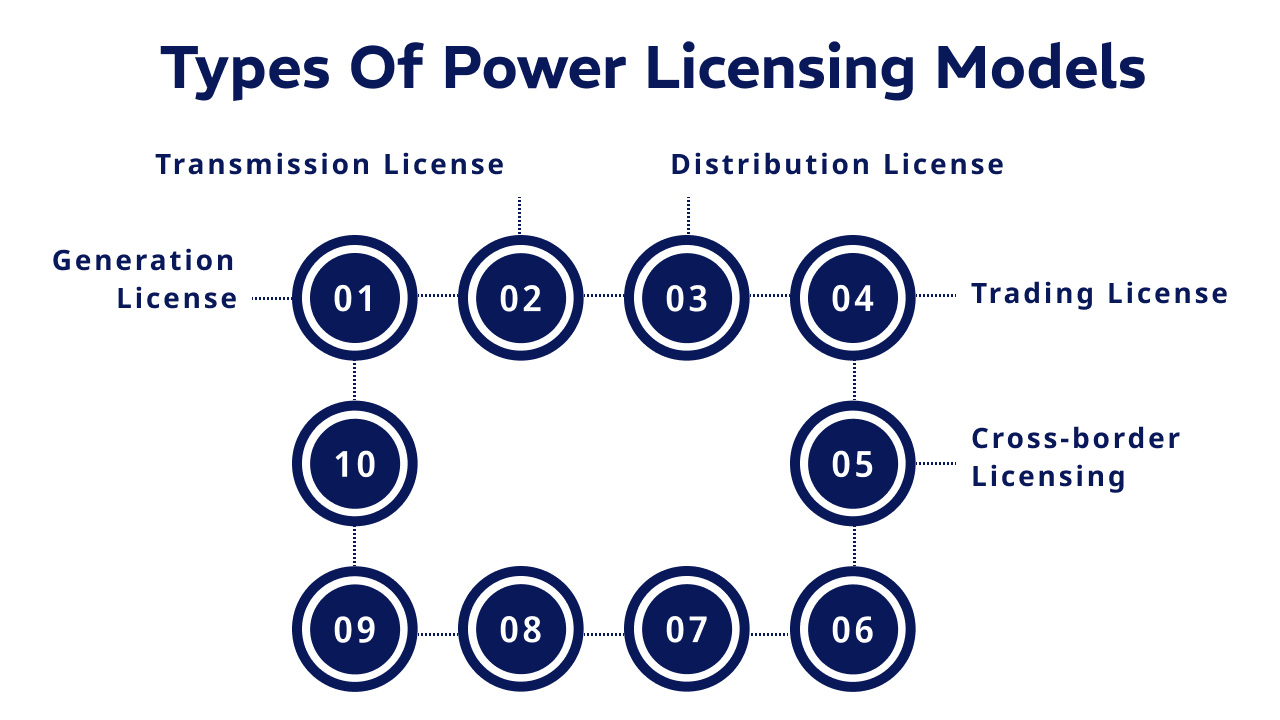
Understanding different licensing models is essential to navigate the energy market effectively. The common types include:
a. Generation License
Granted to entities that produce electricity. Covers plants from fossil fuels, hydro, solar, wind, etc.
b. Transmission License
Allows companies to build and operate transmission lines to move electricity from generators to distribution centers.
c. Distribution License
Permits distribution companies to deliver electricity to end consumers.
d. Trading License
Enables buying and selling of electricity in wholesale or retail markets.
e. Cross-border Licensing
For entities involved in international electricity trade.
Key Factors Influencing Power Licensing
Power licensing is a critical process that governs who can generate, transmit, distribute, or trade electricity within regulated markets. However, obtaining and maintaining a power license is not a straightforward task. Several key factors influence the licensing process, shaping the terms, conditions, and feasibility of operating in the power sector. These factors ensure that licensed entities meet technical, financial, environmental, and regulatory standards to maintain grid reliability, protect consumers, and promote sustainable energy development. Understanding these factors is essential for companies aiming to enter or expand within the energy market, as they directly impact project approval, operational scope, and long-term profitability.
The main factors influencing power licensing include:
- Project Capacity and Scale: Larger projects often require more rigorous scrutiny and extensive compliance measures.
- Technology Type: Licensing differs between conventional (coal, gas) and renewable energy (solar, wind) projects.
- Geographic Location: Proximity to existing grid infrastructure and regional policies affects licensing requirements.
- Regulatory Compliance: Meeting safety, environmental, and legal standards is mandatory.
- Financial Viability: Demonstrating adequate funding and economic sustainability is crucial for license approval.
- Environmental Impact: Adherence to environmental guidelines ensures sustainable development and social acceptance.
By carefully addressing these factors, energy companies can navigate the licensing landscape more effectively and secure the necessary approvals to operate successfully.
Understanding Pricing Strategies in Power Licensing
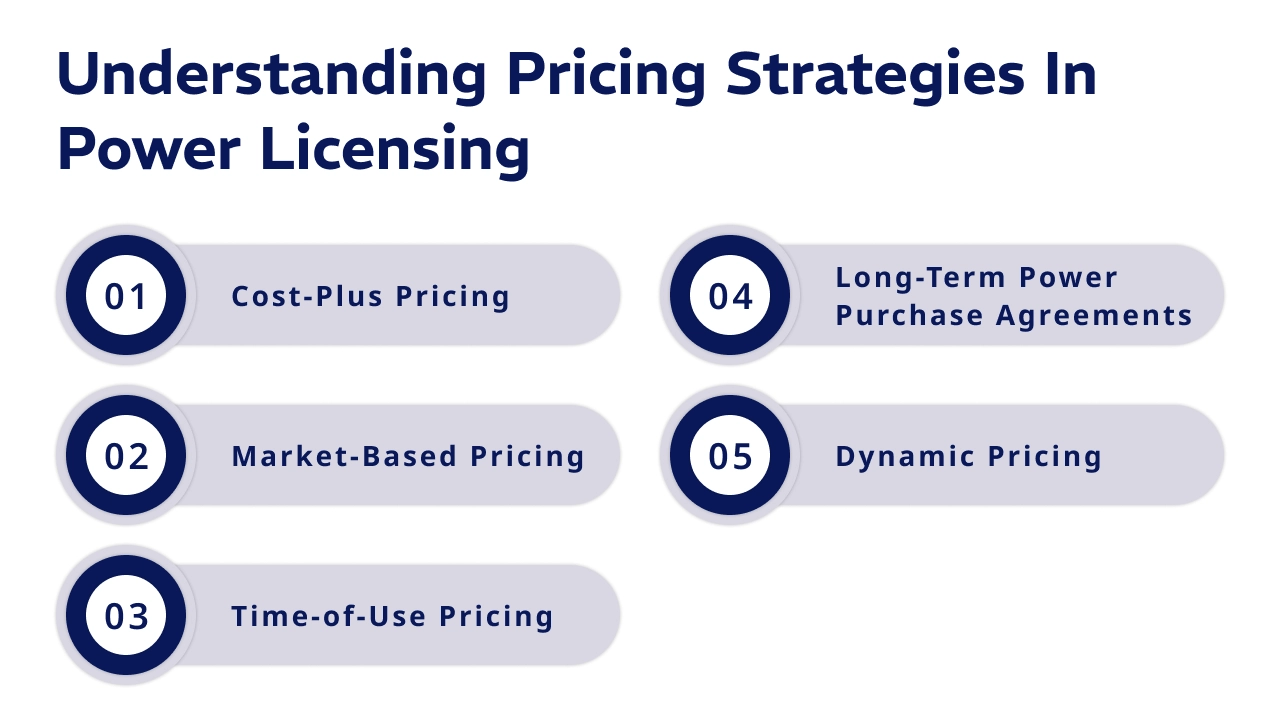
Pricing in power markets can be quite complex, involving multiple approaches such as:
a. Cost-Plus Pricing
Charging based on the cost of generation plus a regulated margin.
b. Market-Based Pricing
Prices determined by supply-demand dynamics in competitive power markets.
c. Time-of-Use Pricing
Different rates for peak and off-peak hours.
d. Long-Term Power Purchase Agreements (PPAs)
Fixed pricing agreements over a set period.
e. Dynamic Pricing
Real-time pricing based on grid conditions.
Market Dynamics Affecting Power Licensing & Pricing
The power industry is constantly influenced by various market dynamics that shape licensing requirements and pricing strategies. Understanding these forces is essential for stakeholders to make informed decisions, optimize operations, and remain competitive. Market conditions such as supply and demand, fuel costs, government policies, and technological innovations play significant roles in determining how power licenses are issued and priced. These factors collectively create a complex environment where adaptability and foresight are crucial.
Key market dynamics include:
- Fluctuations in electricity demand and supply
- Volatility in fuel prices
- Impact of renewable energy adoption
- Regulatory changes and incentives
- Advances in grid and storage technologies
Regulatory and Legal Considerations
- Licensing compliance requirements
- Tariff regulations
- Environmental laws
- Contractual obligations in power purchase agreements
- Penalties for non-compliance
How to Negotiate Power Licensing Agreements
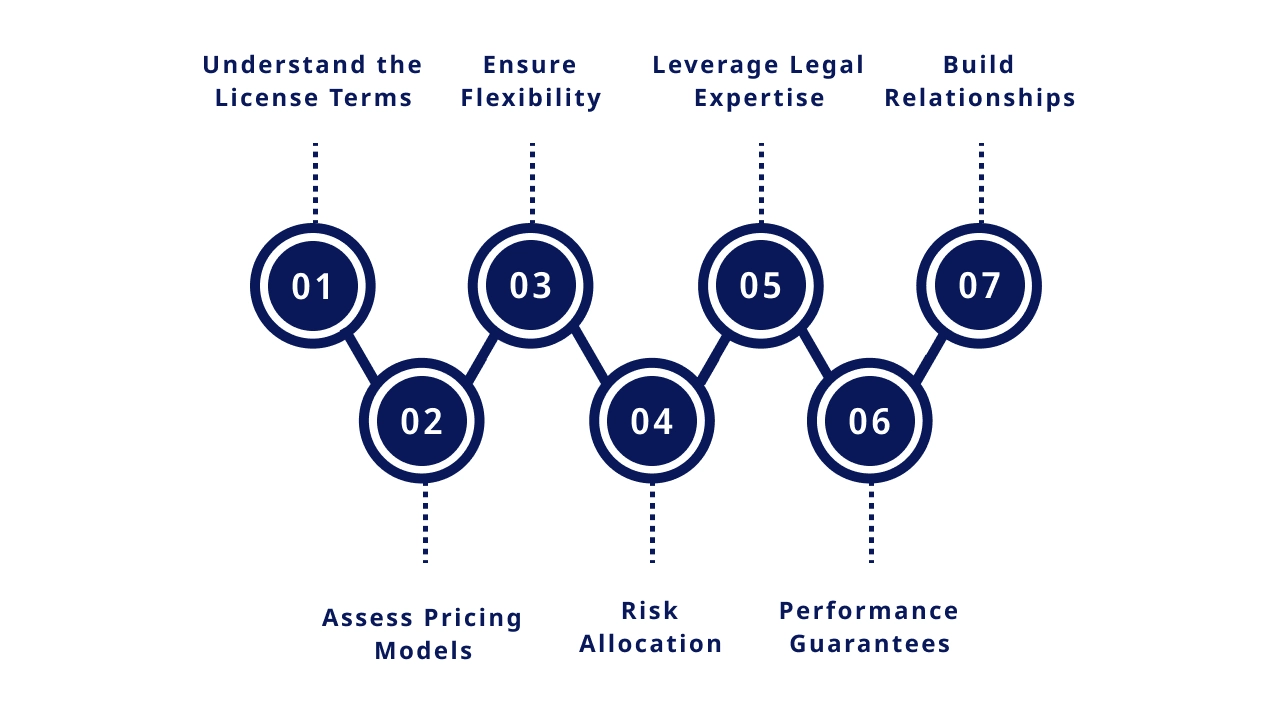
- Understand the License Terms: Thoroughly review all conditions, restrictions, and obligations.
- Assess Pricing Models: Compare fixed, variable, and market-based pricing options to find the best fit.
- Ensure Flexibility: Negotiate clauses that allow adjustments for regulatory changes or market fluctuations.
- Risk Allocation: Clearly define responsibilities and liabilities to minimize disputes.
- Leverage Legal Expertise: Involve experienced legal counsel to identify potential pitfalls.
- Performance Guarantees: Include service-level agreements and penalties for non-compliance.
- Build Relationships: Foster collaborative communication for long-term partnership success.
Challenges and Pitfalls in Power Licensing
- Bureaucratic Delays: Lengthy approval processes and complex paperwork can slow down project timelines significantly.
- Changing Regulations: Frequent updates in energy policies and licensing rules create uncertainty and require constant adaptation.
- Market Uncertainty: Fluctuations in power demand, fuel prices, and competition impact pricing and profitability.
- Technological Disruptions: Rapid advancements may render licensed technologies obsolete or require costly upgrades.
- Environmental Concerns: Licensing often involves strict environmental compliance, which can delay or restrict projects.
- High Entry Barriers: Substantial financial and technical requirements can limit new entrants and innovation.
- Contractual Risks: Poorly negotiated licensing agreements may lead to unfavorable terms or legal disputes.
- Grid Integration Issues: Challenges in connecting to and operating within existing power grids affect efficiency.
- Limited Transparency: Opaque licensing procedures reduce trust and fairness in the sector.
Case Studies of Successful Power Licensing
Examining real-world examples of power licensing helps illustrate best practices and strategic insights. One notable case is the Kamuthi Solar Power Project in India, which secured its generation license swiftly through effective regulatory compliance and community engagement. This project’s long-term Power Purchase Agreement (PPA) with the state ensured stable pricing and financial viability, setting a benchmark for large-scale solar licensing.
In Europe, the Hornsea One Offshore Wind Farm in the UK exemplifies successful licensing for renewable energy. The project navigated complex environmental regulations and secured transmission and generation licenses that enabled one of the world’s largest offshore wind farms to operate efficiently, benefiting from favorable feed-in tariffs.
Lastly, the PJM Interconnection in the United States demonstrates how a well-structured regional transmission organization licenses and manages power trading and transmission. By coordinating multiple stakeholders, PJM ensures reliable power delivery while optimizing market-based pricing mechanisms, showcasing a successful model of integrated power licensing.
Emerging Trends in Power Licensing and Pricing
The power sector is undergoing a transformative shift fueled by technological innovation, evolving market demands, and regulatory reforms. As the world moves towards cleaner energy sources and smarter grids, power licensing and pricing models are also adapting to meet new realities. Emerging trends in this space are redefining how power is generated, distributed, and priced, offering opportunities for greater efficiency, transparency, and consumer engagement.
Some of the most notable emerging trends include:
- Decentralization and Microgrids: Small-scale, localized power generation is changing licensing requirements and pricing structures, promoting resilience and sustainability.
- Blockchain and Smart Contracts: These technologies facilitate transparent, secure, and automated power transactions, reducing costs and improving trust.
- Dynamic and Real-Time Pricing: Advanced data analytics and smart meters enable pricing models that reflect real-time supply and demand, optimizing grid usage.
- Renewable Energy Certificates and Carbon Trading: Market mechanisms are increasingly used to incentivize clean energy and factor environmental costs into pricing.
These innovations are shaping a more flexible, consumer-centric, and sustainable power ecosystem globally.
Tools and Technologies Impacting Power Licensing
The power sector is undergoing a profound transformation fueled by rapid advancements in technology. These innovations are reshaping how power licensing is managed, enforced, and optimized. Modern tools and technologies not only streamline the complex processes involved in obtaining and maintaining power licenses but also improve transparency, compliance, and operational efficiency.
Some of the key technologies impacting power licensing include:
- Licensing Management Software: Automates application processing, tracking, and renewal, reducing bureaucratic delays.
- Smart Metering and IoT: Enables real-time monitoring of power generation and consumption, ensuring accurate reporting and compliance with licensing terms.
- Data Analytics and AI: Helps predict demand patterns, optimize pricing, and detect anomalies or violations in power use.
- Blockchain Technology: Enhances transparency and security in power transactions and licensing agreements through immutable records.
- Cloud Computing: Facilitates centralized data storage and access, improving collaboration among stakeholders.
Together, these tools empower power companies and regulators to navigate the increasingly complex licensing environment with greater agility and accuracy, fostering a more efficient and sustainable energy ecosystem.
Power Licensing for Different Industries
Power licensing plays a vital role across various industries, ensuring that electricity generation, transmission, and consumption comply with legal and regulatory standards. Different industries have unique power needs and operate under distinct licensing frameworks tailored to their scale, usage patterns, and regulatory requirements. Understanding these variations is crucial for businesses to optimize their energy procurement, reduce costs, and maintain compliance.
Key considerations across industries include:
- Industrial Sector: Requires large-scale, often continuous power supply; licensing focuses on high-capacity generation and transmission.
- Commercial Sector: Typically involves medium-scale consumption with variable loads; licensing addresses distribution and retail supply.
- Residential Sector: Focuses on consumer-level distribution licensing, with emphasis on tariff regulation and consumer protection.
- Renewable Energy Projects: Licensing includes special provisions for sustainable generation and grid integration.
Each industry must navigate its specific licensing environment to ensure reliable power access while meeting regulatory and market demands.
The Future Outlook for Power Licensing & Pricing
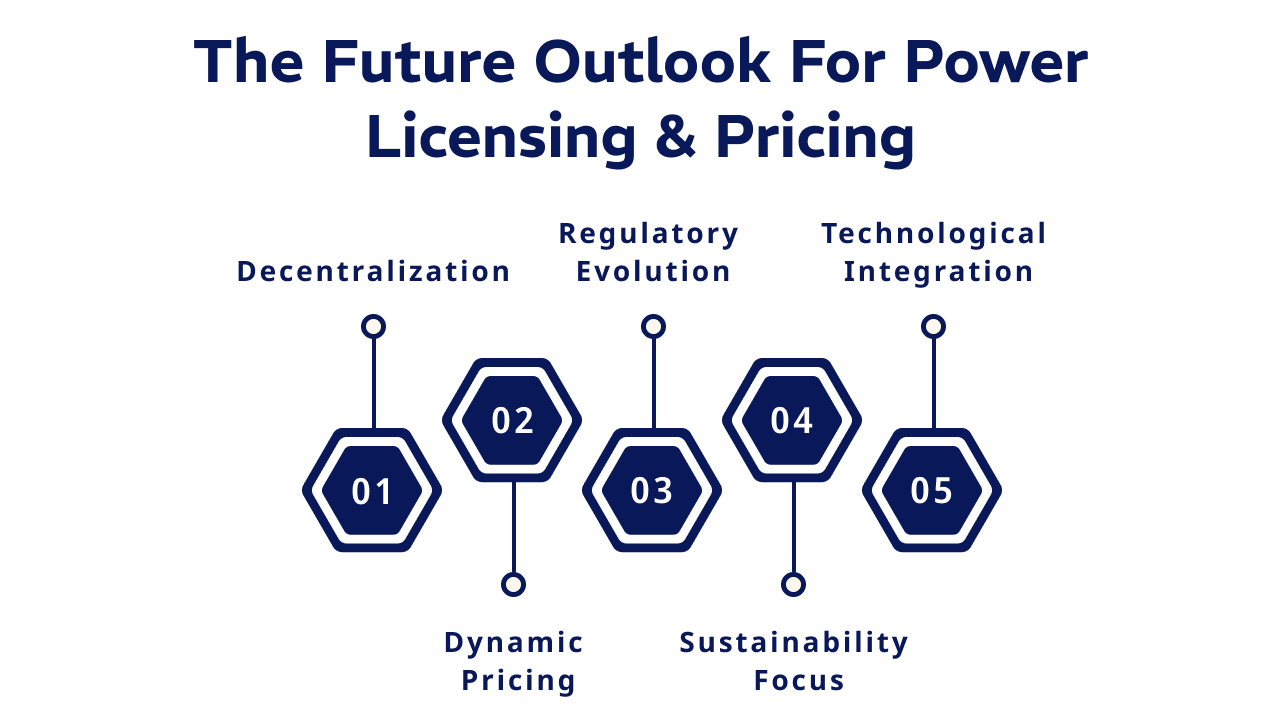
The future of power licensing and pricing is poised for transformative change driven by technological advancements, evolving regulations, and shifting market dynamics. As renewable energy sources continue to gain prominence, licensing frameworks will need to adapt to accommodate decentralized and distributed energy generation such as rooftop solar, microgrids, and community-based projects.
Key trends shaping the future include:
- Decentralization: Increasing shift from centralized grids to distributed energy resources requiring new licensing approaches.
- Dynamic Pricing: Greater adoption of time-of-use and real-time pricing models enabled by smart meters.
- Regulatory Evolution: More flexible, adaptive regulations to support emerging energy technologies and market structures.
- Sustainability Focus: Licensing tied to environmental standards and incentives for green energy projects.
- Technological Integration: Use of AI, blockchain, and IoT to enhance licensing processes and pricing strategies.
Together, these trends promise a more agile, sustainable, and consumer-friendly power sector.
Why True Value Infosoft is the Best Choice for Software Development in India
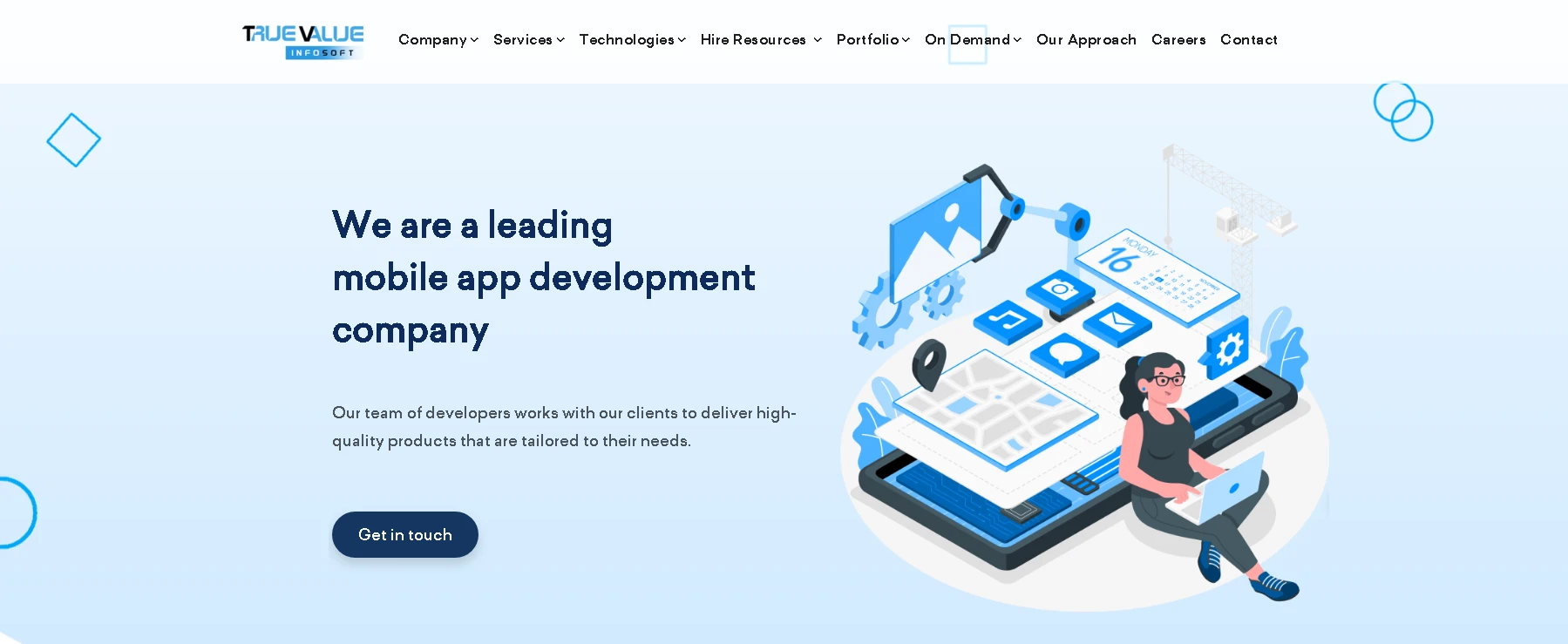
True Value Infosoft stands out as a top software development company in India due to its commitment to innovation, quality, and client satisfaction. With over a decade of experience, the company has delivered cutting-edge digital solutions across diverse industries including healthcare, eCommerce, education, logistics, and fintech. Their team of expert developers, UI/UX designers, and project managers ensures that every project is executed with precision and creativity.
Key Reasons to Choose True Value Infosoft:
- Customized Solutions: Tailored software aligned with specific business needs.
- Latest Technology Stack: Proficiency in AI, blockchain, Flutter, React, and more.
- Agile Development: Faster delivery with flexibility for iteration.
- Client-Centric Approach: Transparent communication and dedicated support.
- Proven Track Record: Hundreds of successful projects and satisfied clients globally.
For scalable, secure, and performance-driven software, True Value Infosoft is the partner you can trust.
Conclusion
Unlocking the secrets of power licensing and pricing is essential for any business or organization operating within the energy sector. Understanding the various licensing models, pricing strategies, and regulatory frameworks allows stakeholders to navigate the complex energy landscape confidently and make strategic decisions that optimize costs and maximize value. As the energy industry evolves with the rise of renewables, smart technologies, and market liberalization, staying informed and adaptable is more important than ever.
At True Value Infosoft, we specialize in delivering cutting-edge software solutions tailored for power licensing and pricing management. Our expertise empowers energy companies to streamline compliance, optimize tariff structures, and leverage data-driven insights for smarter decision-making. By partnering with True Value Infosoft, you gain a trusted technology ally committed to helping you unlock the full potential of your power licensing operations while staying ahead in a competitive market. Together, we can drive innovation and sustainable growth in the energy sector.
FAQs
Power licensing ensures that power generation, transmission, and distribution comply with legal, safety, and environmental standards. It protects consumers and promotes efficient energy markets. Proper licensing also facilitates transparent pricing and market stability.
Pricing varies by licensing model but often involves cost-plus, market-based, or time-of-use pricing. Long-term agreements like PPAs also impact pricing. These strategies help balance profitability with consumer affordability and regulatory requirements.
Yes. Licensing regulations depend on national and regional energy policies, regulatory authorities, and market structures. Staying compliant requires understanding local laws, which is where True Value Infosoft’s regulatory management tools can help.
Advanced software and data analytics optimize tariff setting, compliance tracking, and forecasting. True Value Infosoft offers solutions that automate licensing processes, improve pricing accuracy, and enable strategic decision-making.
Common challenges include regulatory changes, market volatility, and complex contract negotiations. Partnering with experts like True Value Infosoft can help navigate these challenges through tailored technology and consultancy services.

